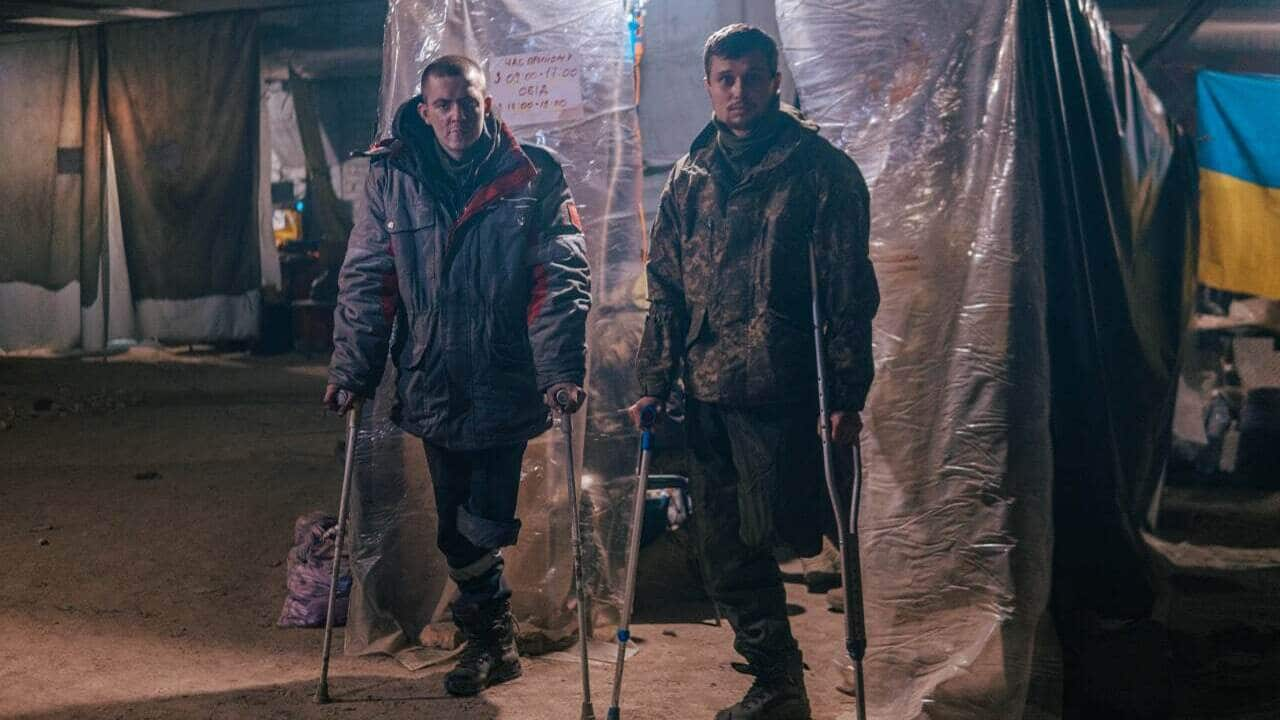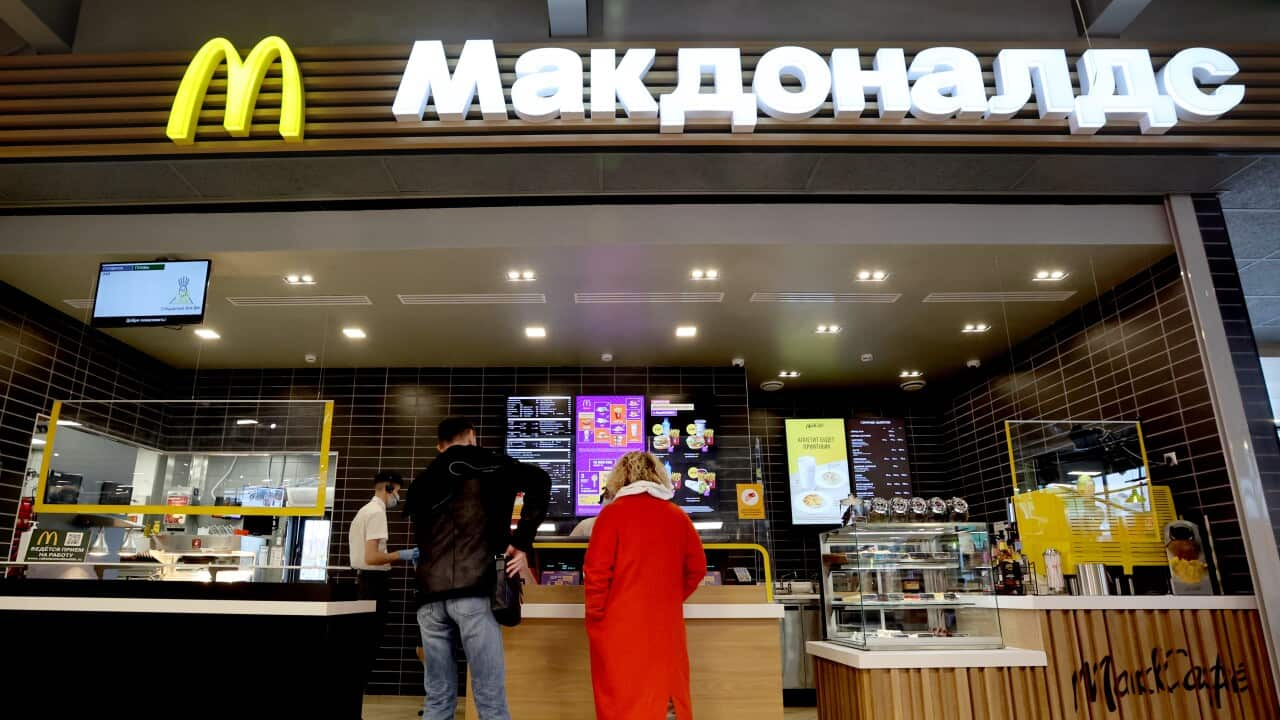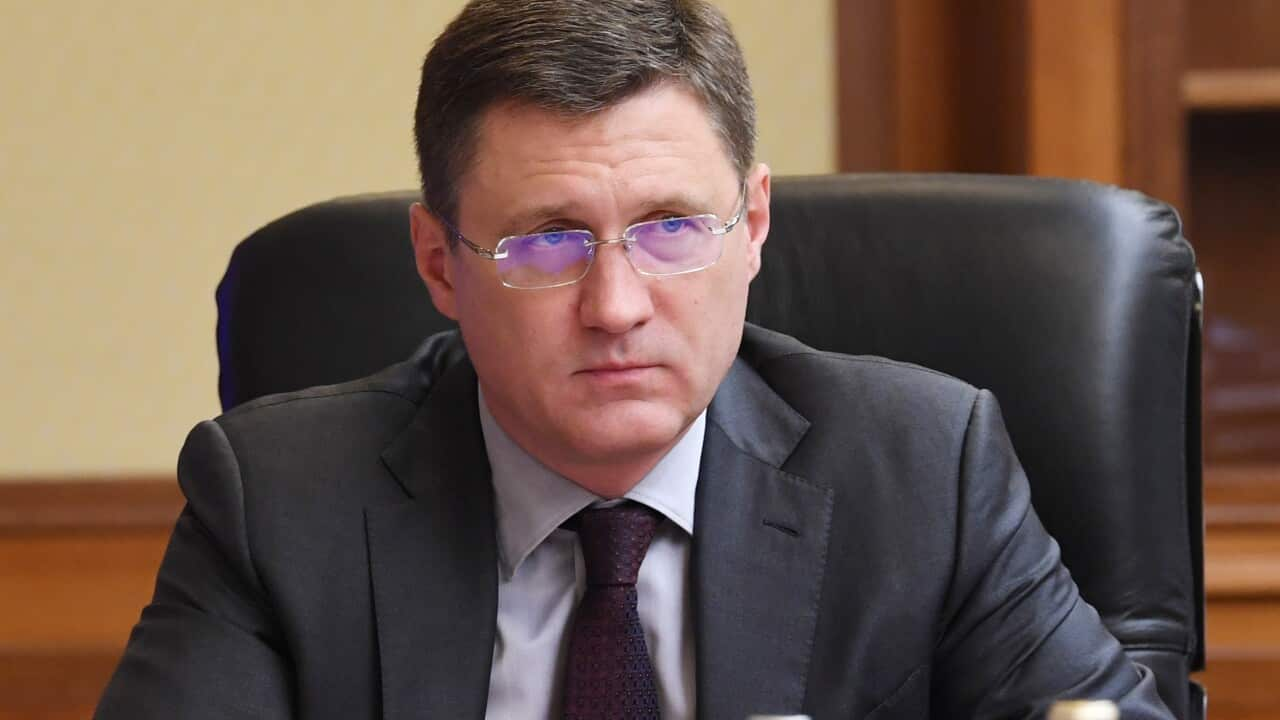American fast-food giant McDonald's said Monday it will exit Russia in the wake of the Ukraine invasion, ending a more than three-decade run begun in the hopeful period near the end of the Cold War.
The restaurant chain, which launched in Moscow in January 1990 to great fanfare almost two years before the Soviet Union was dissolved, characterised the withdrawal as difficult but necessary.
"The humanitarian crisis caused by the war in Ukraine, and the precipitating unpredictable operating environment, have led McDonald's to conclude that continued ownership of the business in Russia is no longer tenable, nor is it consistent with McDonald's values," the company said in a statement.
The chain is looking to sell "its entire portfolio of McDonald's restaurants in Russia to a local buyer."
The burger giant is one of numerous foreign firms that have pulled out of the country or suspended operations following Moscow's invasion of Ukraine in late February.
Earlier on Monday, French automaker Renault announced it had handed over its Russian assets to the government, marking the first major nationalisation since the onset of Western sanctions against Moscow's military campaign.
Russia's President Vladimir Putin ordered troops into pro-Western Ukraine on 24 February, triggering unprecedented sanctions and sparking an exodus of foreign corporations including H&M, Starbucks and Ikea.
In March, citing "unspeakable suffering to innocent people," McDonald's closed all of its 850 restaurants in the country, where it says it employs 62,000 workers.
But on Monday the "Big Mac" maker went a step further, saying the company "is pursuing the sale of its entire portfolio of McDonald's restaurants in Russia to a local buyer."
After the sale, the restaurants would no longer be able to use the McDonald's name, logo, branding or menu, though the company will retain its trademark in the country, the company said.
Russia currently accounts for nine per cent of the company's revenue and three percent of its operating profit.
McDonald's expects a one-time charge of $1.2 billion to $1.4 billion to write off the investment.
A 'new era'
The withdrawal offers a stark contrast to the optimism that surrounded the arrival of the quintessentially American brand in Russia in the waning days of the Cold War.
The company started discussing the Russian business at the 1976 Olympics in Canada where McDonald's let Russian athletes use the "Big Mac Bus" in a sign of goodwill.
That led to 14 years of negotiations, "culminating in the glorious day in January of 1990 when the first McDonald's opened to so much hope and excitement in Pushkin Square," recalled McDonald's chief executive Chris Kempczinski in a message to employees.
"In the history of McDonald's, it was one of our proudest and most exciting milestones," Mr Kempczinski said. "After nearly half a century of Cold War animosity, the image of the Golden Arches shining above Pushkin Square heralded for many, on both sides of the Iron Curtain, the beginning of a new era."
In the subsequent decades, McDonald's operations in Russia expanded far beyond Moscow as the company invested billions of dollars and grew its supply chain.
But Mr Kempczinski said the Russia investment was no longer viable in terms of business, or consistent with company values.
Still, he closed his message on a hopeful note, saying, "let us not end by saying, 'goodbye'... (but) 'Until we meet again.'"
The company's decision to divest "underlines a view that relations with Russia will not soon be normalised," said Neil Saunders, a retail expert at GlobalData.
The conditions of the exit, including the financial challenges facing prospective Russian buyers, mean "it is unlikely the sale price will be anywhere near the pre-invasion book value of the business," said Saunders, adding that the departure "will leave a hole" in McDonald's growth plans "that is not easily filled in the near-term."

The Renault Group logo is pictured in front of the automobile plant in Moscow on April 26, 2022. (Photo by Kirill KUDRYAVTSEV / AFP) (Photo by KIRILL KUDRYAVTSEV/AFP via Getty Images) Source: Getty / KIRILL KUDRYAVTSEV/AFP via Getty Images
Nationalisation of Renault
French automaker Renault has also handed over its local assets to the Russian government, both parties announced, marking the first major since the onset of sanctions over Moscow's military campaign in Ukraine.
Renault controlled 68 per cent of AvtoVAZ, the largest carmaker in Russia with the country's top brand Lada, but was under pressure to pull out of the country since the start of Russia's military intervention in Ukraine in late February.
Renault has funnelled billions of euros into the Soviet-era factory since the two automakers signed a strategic partnership agreement in 2008.
No financial details were provided on Monday, but Russian Industry and Trade Minister Denis Manturov said in April that Renault planned to sell its Russian assets for "one symbolic ruble".
"Agreements were signed on the transfer of Russian assets of the Renault Group to the Russian Federation and the government of Moscow," the industry ministry said in a statement.
Under the agreement Renault will retain a six-year option to buy back the stake in AvtoVAZ.
The deal also included Renault's Moscow plant, which makes Renault and Nissan models.
"It was a brave and quick decision," Renault chief executive Luca de Meo told reporters.
'New page in history'
Mr De Meo said Russia and its car industry will likely "continue to suffer for a long time" from sanctions imposed over Ukraine.
He added that the company's Russian operations would have quickly faced bankruptcy and 45,000 people would have lost their jobs.
"We didn't have many choices. I think we did the right thing," he said.
Mr De Meo did not disclose the financial details of the deal.
Renault indicated that a non-cash writedown of 2.2 billion euros will be made on the firm's Russia assets in the first half of 2022.
Renault's shares skidded 0.7 per cent lower on Monday, and are down more than a third from before the invasion began.
Thanks to AvtoVAZ, Russia was Renault Group's second-largest market behind Europe last year, with around half a million vehicles sold.
Moscow mayor Sergei Sobyanin said production of passenger cars at the Renault plant would resume under the Soviet-era Moskvich (Muscovite) brand, which the French automaker had discontinued.

A view of the Moscow plant of Renault. The French car maker has signed an agreement to transfer its AvtoVAZ stake to the NAMI Central Automobile and Automotive Engines Research Institute, and its Moscow plant to the city authorities. Source: AAP / TASS/Sipa USA
"In 2022, we will open a new page in the history of Moskvich," he added.
The first Moskvich cars were produced in 1946 and were inspired by Germany's Opel Kadett K38, but the brand's vehicles were notorious for their shoddiness.
Political commentator Anton Orekh said that it was unclear what Moscow authorities planned to do with the plant, but trying to make a new car from scratch in the absence of access to foreign technologies and components would be akin to throwing "billions to the wind."













